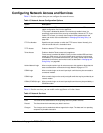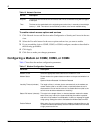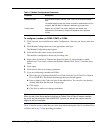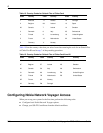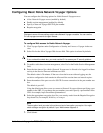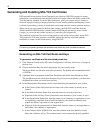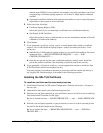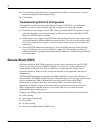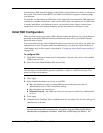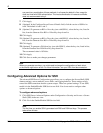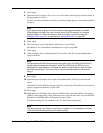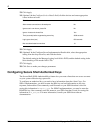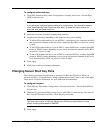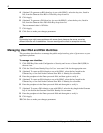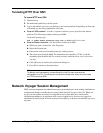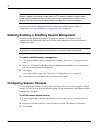
Nokia Network Voyager for IPSO 4.0 Reference Guide 305
You should use SSH, instead of utilities such as Telnet or rlogin that are not secure, to connect to
the system. You can also tunnel HTTP over SSH to use Network Voyager to securely manage
your platform.
To use SSH, you must obtain an SSH client for the other end of the connection. SSH clients are
available for a number of platforms. Some are free while others are commercial. An SSH client
is already installed on your platform; however, you probably want a client to connect from
another host, such as your desktop computer, and you must install a client there as well.
Initial SSH Configuration
When you first activate your system, SSH is already enabled and host keys for your platform are
generated and installed. SSH automatically authenticates users who log in with the standard
password mode of login.
You do not need to do any other configuration unless you want users to be able to use public-key
authentication as well. To permit public-key authentication, you must first authorize the users’
client identity keys for this system, as described in “Configuring Secure Shell Authorized Keys”
on page 308.
To configure SSH
1. Click SSH Configuration under under Configuration > Security and Access > Secure Shell
(SSH) in the tree view.
2. Select Yes in the Enable/Disable SSH Service field.
Note
The first time you enable SSH it generates both RSA v1, RSA v2, and DSA host keys. This
process will take a few minutes.
3. Click Apply.
4. Select whether the admin user can log in with SSH.
Yes—the admin user can log in using SSH and can use the password mode of
authentication to do so. This is the default setting.
No—the admin user cannot log in.
Without Password—the admin user can log in, but must use public-key authentication
to do so.
5. Click Apply.
6. (Optional) In the Configure Server Authentication of Users table, click Yes for each type of
authentication to be used.
Note
You can authenticate SSH connections by using public keys (for RSA and DSA SSHv2),
standard user and password information, rhosts files, and RSA keys (for SSHv1). You



